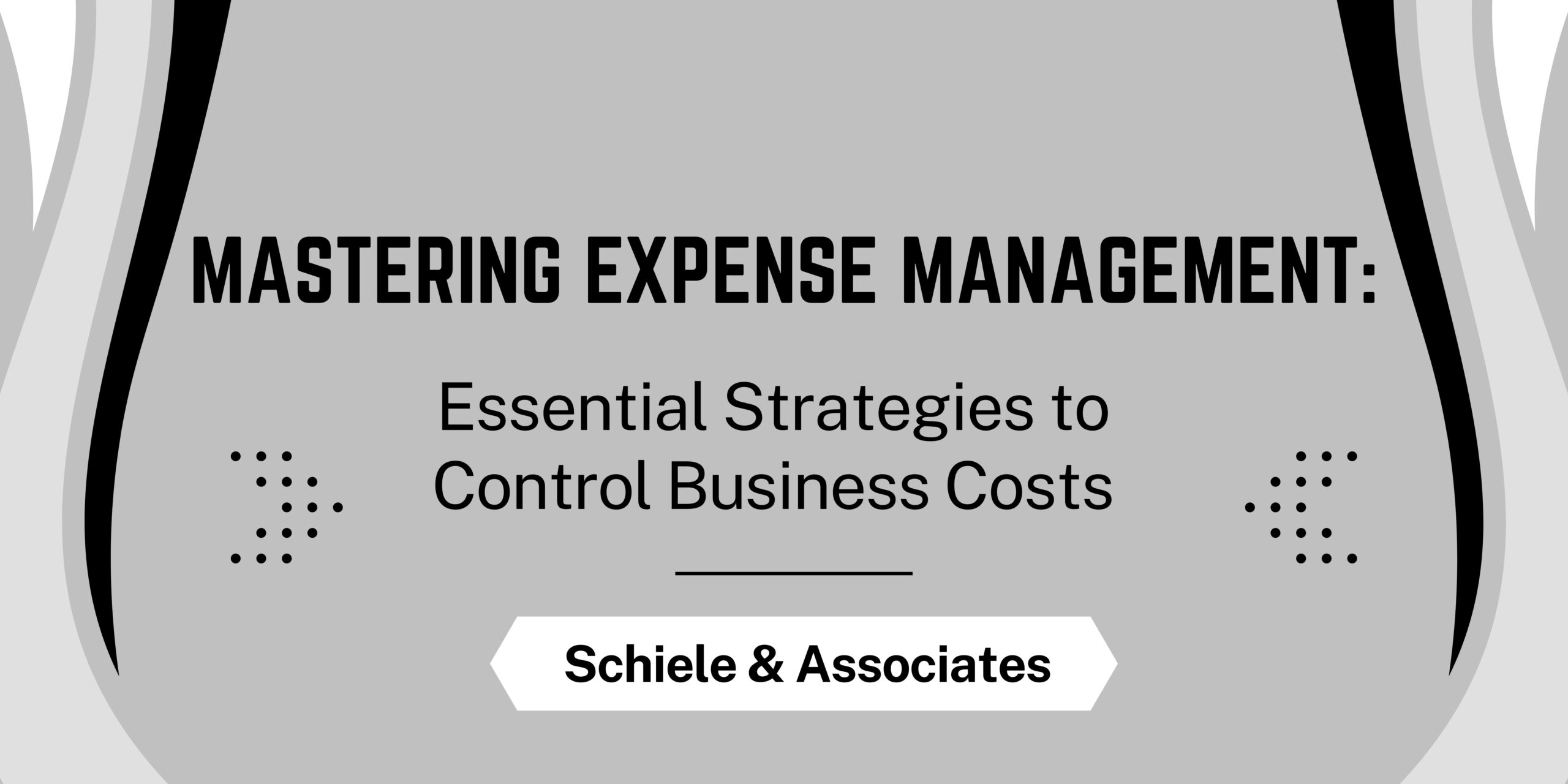The ability to effectively manage expenses is key to ensuring your company not only survives but thrives. For businesses striving for growth, it’s crucial to monitor and control cash outflows meticulously. This article outlines effective strategies to streamline expenses, enhance profitability, and achieve sustainable growth. Let’s explore how smart expense management can unlock your business’s financial potential.
The Importance of Expense Management
Effective expense management is vital for maintaining financial health in a competitive business landscape. Here’s why it matters:
- Boost Profitability: Reducing unnecessary costs can directly increase your profits without the need to ramp up sales.
- Enhance Cash Flow: Better control of expenses ensures more available cash, providing greater flexibility for operations and future investments.
- Strengthen Financial Stability: By keeping expenses in check, your business becomes more resilient to market fluctuations and economic downturns.
- Support Sustainable Growth: Efficient use of resources allows you to reinvest strategically in areas that foster long-term business growth.
Why Expense Management is Crucial
Companies that adopt strategic expense management practices can lower their overall costs by as much as 20-30%, significantly impacting their bottom line. Depending on your business’s scale, this could result in substantial annual savings, which can be redirected toward growth and innovation.
Key Benefits of Smart Expense Management
- Improved Financial Health: By identifying and eliminating wasteful spending, you can increase profitability and build cash reserves.
- Better Decision-Making: Understanding your spending patterns allows for more informed budgeting and resource allocation.
- Increased Operational Efficiency: Streamlining processes and reducing waste leads to smoother operations and higher productivity.
- Optimized Resource Allocation: Free up funds to invest in high-impact areas that align with your strategic goals and drive business growth.
Effective Strategies to Manage Cash Outflow
- Implement a Comprehensive Budgeting System: A well-structured budget helps you monitor spending and ensures funds are allocated to the most critical areas.
- Leverage Technology for Expense Tracking: Use financial management software to track and analyze expenses in real-time, allowing for quick adjustments.
- Negotiate with Vendors: Regularly review contracts and negotiate better rates to reduce costs without compromising quality.
- Optimize Workforce Efficiency: Evaluate workforce productivity and implement measures to improve efficiency, such as training programs or process automation.
- Reduce Energy Costs: Implement energy-saving initiatives to lower utility bills, which can significantly reduce overall operating costs.
- Streamline Business Processes: Continuously review and refine your business processes to eliminate inefficiencies and reduce operational costs.
Discover the Difference with Schiele and Associates
At Schiele and Associates, our Fractional CFO services offer expert guidance tailored to your unique needs. We help businesses:
- Develop customized expense management strategies
- Implement effective cost control measures
- Drive operational efficiency
- Maximize profitability
Strategic Benefits of Expense Management
Focusing on effective expense management is crucial for businesses aiming to not only survive but thrive in today’s competitive environment. By meticulously monitoring and controlling cash outflows, companies can unlock significant opportunities for growth, profitability, and long-term success. This section delves deeper into the strategic importance of expense management and its impact on a company’s financial health.
The Strategic Importance of Expense Management
Expense management goes beyond simply cutting costs—it’s about making informed decisions that directly impact a company’s financial health. Here’s a closer look at why it’s crucial:
Boost Profitability: Reducing unnecessary expenses has a direct and immediate impact on profitability. For example, a study by PwC found that companies implementing rigorous cost management practices saw an average increase in profit margins by up to 5%. This means that businesses can significantly enhance their profitability by identifying and eliminating wasteful spending without the need for increased sales.
Enhance Cash Flow: Effective expense management improves cash flow, which is essential for maintaining day-to-day operations and funding future investments. A report by the Aberdeen Group found that organizations with best-in-class expense management processes had 52% more cash on hand for strategic investments compared to their peers. This increased liquidity allows businesses to be more agile, responding quickly to opportunities and challenges.
Strengthen Financial Stability: In a volatile market, maintaining financial stability is key to weathering economic downturns. Research by McKinsey & Company shows that companies with strong expense management practices are 25% more likely to survive a financial crisis. By keeping expenses under control, businesses can build a financial cushion that helps them remain resilient during uncertain times.
Support Sustainable Growth: Strategic reinvestment of saved resources into growth initiatives is a hallmark of sustainable business practices. According to a study by Deloitte, companies that strategically reinvest savings from cost-cutting measures into innovation and growth see a 30% higher return on investment. This approach ensures that cost savings contribute to the long-term success and competitiveness of the business.
Why Strategic Expense Management is Essential
Implementing strategic expense management can lead to substantial cost reductions, often by as much as 20-30%. For a mid-sized company, this can translate into savings of millions of dollars annually, which can be redirected into growth opportunities, innovation, and market expansion. The impact on the bottom line is profound, making expense management a critical component of business strategy.
Key Benefits of Strategic Expense Management
Improved Financial Health: Companies that actively manage their expenses see significant improvements in their financial health. By focusing on eliminating wasteful spending, they can increase profitability and build a robust financial reserve, positioning themselves better for future growth.
Better Decision-Making: Strategic expense management provides clearer insights into where money is being spent, which is crucial for effective budgeting and resource allocation. This leads to more informed decision-making and better financial planning, helping companies achieve their strategic goals.
Increased Operational Efficiency: Streamlining operations by cutting unnecessary costs leads to increased efficiency and productivity. This not only reduces expenses but also enhances the overall performance of the organization, making it more competitive in the market.
Optimized Resource Allocation: With a clear understanding of expenses, companies can allocate resources more effectively, ensuring that funds are directed toward high-impact areas that align with their strategic objectives. This targeted approach to spending drives business growth and innovation.
To reinforce the importance of strategic expense management, here are some key insights and resources that align with and support this approach:
1. Article Support:
- Harvard Business Review: The article “The Cost of Cost Cutting” emphasizes that while reducing expenses can improve profitability, it’s essential to align cost management with long-term strategic goals to avoid undermining growth potential. The article stresses that effective expense management involves more than just cutting costs; it’s about making informed decisions that support sustainable growth.
- McKinsey & Company: In their publication “Managing Costs in Uncertainty,” McKinsey discusses how businesses that take a strategic approach to cost management during economic downturns can emerge stronger. They advocate for a balanced approach that includes targeted reinvestment into growth areas, which aligns with the importance of strategic reinvestment highlighted in your article.
2. Data Insights:
- PwC Cost Management Survey: PwC’s survey found that 88% of companies that implemented structured cost management strategies saw a significant increase in profitability. This data underscores the importance of not only managing costs but doing so with a strategic framework that supports overall business objectives.
- Aberdeen Group Report: This report shows that companies with advanced expense management processes report 52% more cash on hand for strategic investments compared to their peers. This statistic directly supports the article’s point about enhanced cash flow and financial flexibility resulting from effective expense management.
3. Books and Manuals:
- “Profit First” by Mike Michalowicz: This book advocates for a system where businesses prioritize profit by managing expenses more effectively. Michalowicz’s approach reinforces the idea that strategic expense management is essential for long-term financial health and sustainability.
- “Lean Thinking” by James P. Womack and Daniel T. Jones: This book discusses the principles of Lean Management, focusing on eliminating waste and improving efficiency. These concepts are directly applicable to the strategies mentioned in the article, particularly in streamlining business processes and optimizing resource allocation.
4. Manuals and Frameworks:
- The CFO Guide to Expense Management by SAP Concur: This manual provides practical guidance on implementing effective expense management systems within organizations. It emphasizes the role of technology in tracking and controlling expenses, which supports the article’s mention of leveraging technology for expense tracking.
- APQC’s Best Practices in Expense Management: The American Productivity & Quality Center (APQC) offers resources and frameworks for best practices in expense management. Their studies highlight the importance of continuous monitoring and adjusting expense strategies to align with business goals.
These resources and data points collectively reinforce the strategic importance of expense management as outlined in your article. They provide evidence that adopting a structured, informed approach to managing expenses can significantly enhance profitability, cash flow, and overall business resilience.
Discover the Difference with Schiele and Associates
At Schiele and Associates, we understand that every dollar saved can be a step toward greater success. Our Fractional CFO services are designed to help businesses like yours develop and implement tailored expense management strategies. By working closely with your team, we ensure that cost control measures are effective, operational efficiency is maximized, and profitability is enhanced.
Ready to take control of your business expenses and boost your bottom line? Contact Schiele and Associates today for a complimentary consultation and discover how we can help you achieve financial excellence.




